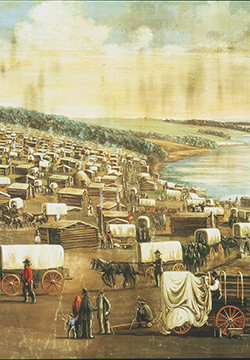October 11, 1836
Eaton v. Smith: Joseph Smith and Oliver Cowdery signed a promissory note to Winthrop Eaton for $1,150. The note was to be satisfied in Kirtland Safety Society notes in six months.

Read peer-reviewed articles about Joseph Smith and other Church history topics from BYU Studies. Visit byustudies.byu.edu.